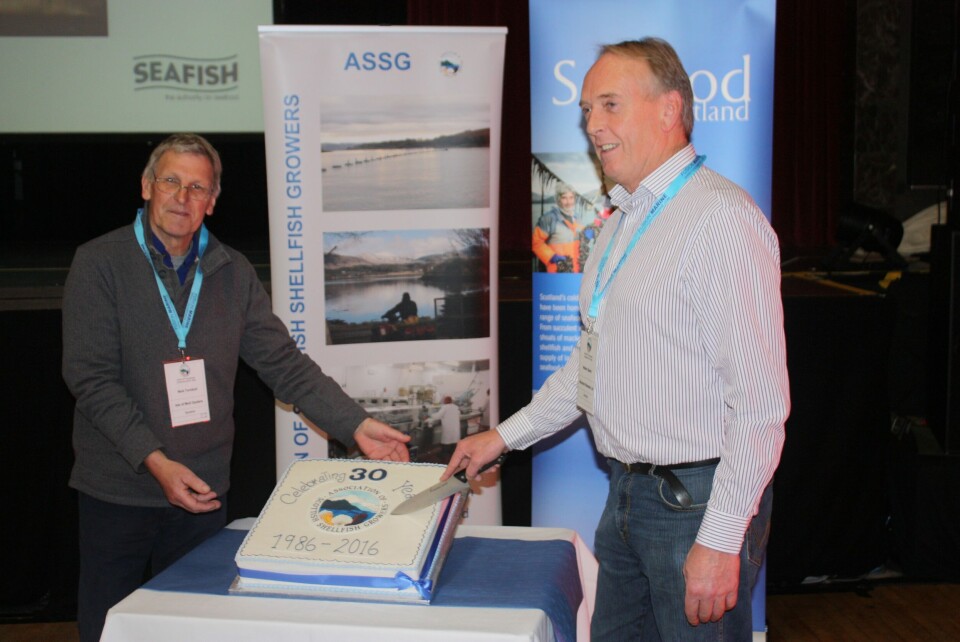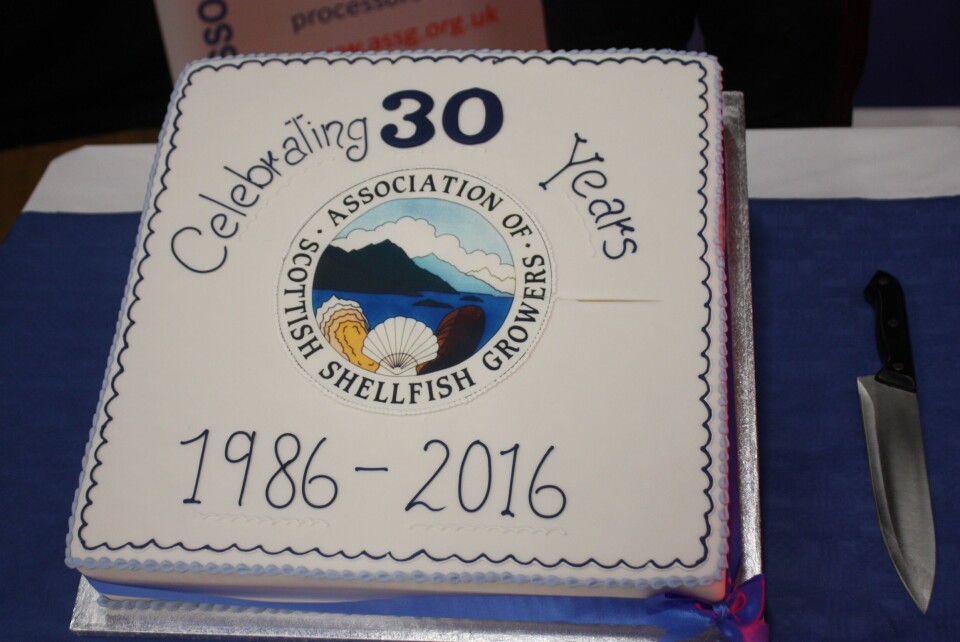
Need to reach “critical mass”
The need for the Scottish industry to "reach critical mass" was the subject of a key presentation at the 30th anniversary of the Association of Scottish Shellfish Growers (ASSG), which took place in Oban today.
Founding director Walter Speirs and one of the two current directors, Nick Turnbull, cut the cake at today's event.
Walter reflected how times had changed since he first started farming, back in 1985 - not least as one of the shellfish growers' "main enemies" was the salmon farming sector, due to the TBT they were using as antifoulant, which was causing deformation of oyster shells.

Thankfully, Walter noted, the shellfish and salmon industries were now on better terms. However, he noted that despite a number of changes in the sector, there were also several constants - with water quality issues and concerns over money perhaps topping the list.
In terms of the latter, he explained: "It has always been a struggle to get enough money to allow the Association to do what it needed to do" and he thanked "loyal members - such as Andy Abrahams and Dennis Gowland - who have continued to support the ASSG."
Walter's talk was followed up by one from Nick, who reflected on how the oyster farming industry has evolved since he first started farming, on Mull, in 1990.
Starting up, Nick recalled, was a question of trial, error...and low tech apparatus - such as a the use of adapted early 20th century potato graders to sort the oysters.
Since then, he continued, technology has improved considerably, and how to use it "can now be learnt in minutes on youtube, rather than requiring weeks of work experience in France".
There was also a limited market, he recalled, with the UK market quickly becoming saturated as more small oyster farms sprung up around Britain, while supermarkets were hard to persuade to take oysters due in part to the sporadic supply.
Their case was not helped by an attempt to introduce microwaveable oysters in garlic sauce on Christmas, which had a tendency to either fail to cook or explode, depending on the thickness of their shell.
Since then, Nick reflected, the market for Scottish oysters has "quietly and steadily improved, without the need for the impossible microwavable oyster project", which has inspired a number of new farms - both by new growers and operators from elsewhere, such as France - to spring up, making it "a time of optimism for the industry".
The future
Nick's next investment, which is currently being installed, is a 6m water grader - "quite a long way from the MacRobert potato grader!"
But, despite technological improvements, and the maturing of the industry, he believes the Scottish oyster sector has still not reached "critical mass" - not least due to the isolated nature of many farms and the lack of capital available.
"The future of oyster farming looks better than it has for any time but there's still a long way to go," he concluded.























































